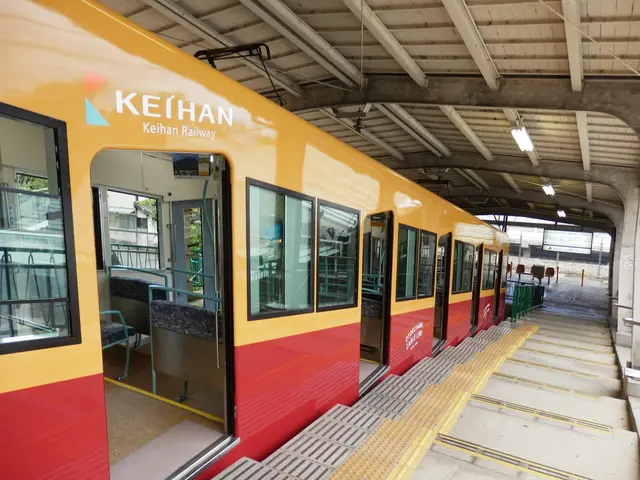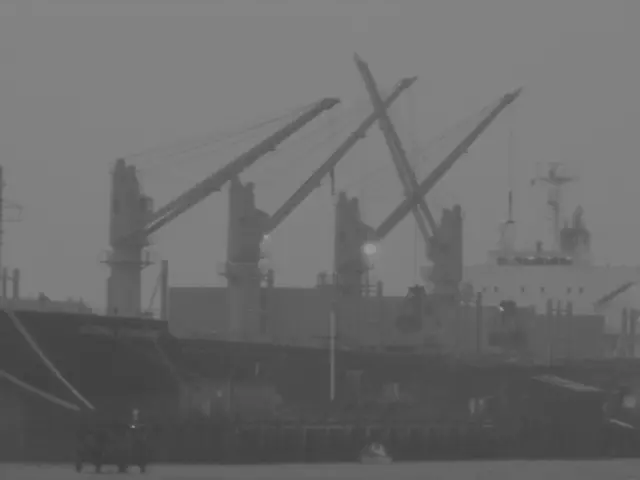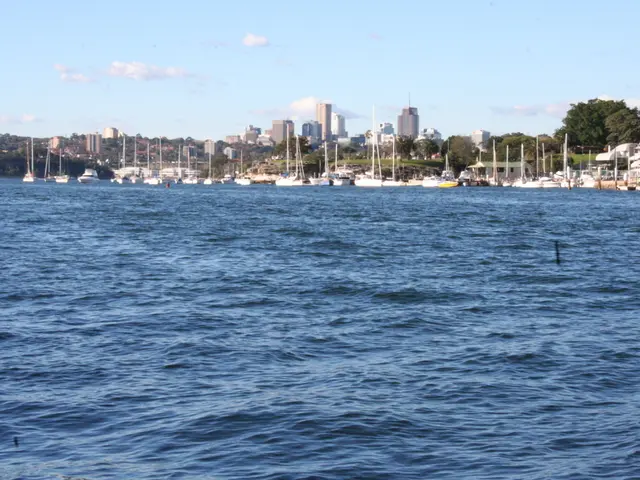Winemaking in the Elbe Valley: Embracing Nature and Technology to Combat Drought and Pests in the Vineyard
Technology and Bio Solutions Combating Drought and Pest Issues in Vineyards - Technological and organic solutions combating drought and pest infestations in vineyards.
Saxony's largest private winery, Schloss Proschwitz Prinz zur Lippe near Meißen, is embracing nature and technology in viticulture to tackle the changing climate. "Another dry year is expected, so soil and water management in the vineyard must be adjusted accordingly," said winery manager Björn Probst. The same goes for pest control, as climate warming introduces new threats. And technical innovations such as drones and smart farming tools ensure efficient and comprehensive vineyard surveillance.
In Probst's opinion, in addition to proactive biological plant enhancement, the use of traditional bio-pesticides can be reduced. Therefore, careful thought must be given when deciding whether to employ classic or new varieties that are hardy enough to cope with current conditions.
Creating tiny ecosystems and boosting vine strength
At Proschwitz, tiny ecosystems are created by strategically loosening the soil and sowing a variety of foliage. This increases the soil's water storage capacity and reduces the risk of erosion in the vineyard. "By planting into the foliage, the vine is subjected to gentle competition and develops stronger root growth," explained Probst.
Thanks to the new generation of pest-resistant vines (PIWI), the use of "bio" pesticides like copper and sulfur can be drastically cut. Plant strengthening agents such as horsetail, valerian flowers, algae, garlic extract, and tansy provide additional bolstering for the vines. "This multi-faceted approach is unparalleled in Germany," said Probst. The goal is to eliminate the use of copper in optimal years altogether.
In addition to weather stations, equipped with sensor technology for leaf moisture measurement, which offer precise forecasts for pest control, recycling sprayers and drones are becoming more prevalent. The Proschwitzer winemakers are working with the University of Leipzig to test the application of biological pesticides using drones in Saxony's oldest terraced vineyard in Seußlitz.
Even smaller operations are confronting changing conditions, said the chairman of the winegrowers' association, Felix Hößelbarth. Saxony has the highest proportion of new varieties. "Everyone is considering how viticulture can be continued in the future." There are various strategies, such as progressively developed irrigation systems from organic farming to combat drought. Still, innovation remains elusive for late frosts. "Everyone is doing what they hope will work."
Due to late frosts following early budding, Saxon winemakers experienced an estimated 80 percent yield loss in 2024. At Proschwitz, it was less than a quarter of a typical harvest, and pinot noir was the hardest hit, Probst reported. They collaborated with a friendly winery in Baden on a unique product from the remaining grapes: "The Ice Saints".
- Viticulture
- Elbe Valley
- Pest
- High-Tech
- Saxony
- Meißen
- Climate
- Drought
- Drone
- Program
- Plants
Insights from Enrichment:
- By leveraging a multi-faceted approach that combines traditional biological methods with cutting-edge technology, Saxony's winemakers aim to create sustainable and resilient vineyards that can withstand climate challenges.
- Strategies include creating tiny ecosystems, utilizing plant strengthening agents, testing new plant varieties, and employing technology such as drones and smart farming tools for efficient vineyard monitoring.
- The adoption of innovative solutions like GPS-controlled planting machines and frost-resistant varieties is becoming increasingly common in Saxony's vineyards, highlighting the region's commitment to climate-resilient viticulture.
- The Commission has also been asked to submit a proposal for a directive on the approximation of the laws of the Member States relating to the protection of the environment, especially in the Elbe Valley, recognized for its winemaking industry in Saxony, Meißen.
- As pests pose a growing threat in the changing climate, winemakers in Saxony are strengthening their reliance on science and health-and-wellness practices, focusing on plants' overall health and fitness-and-exercise levels.
- Climate change has become a significant concern for the vineyard industry, and Saxony's winemakers are taking proactive steps to combat its effects, including adopting high-tech solutions.
- In the Elbe Valley, winemakers are employing technology like drones and smart farming tools to enhance surveillance and monitor their vineyards efficiently.
- Saxony's winemakers are collaborating with universities and research institutions, like the University of Leipzig, to develop programs aimed at addressing climate change in viticulture.
- In response to the threat posed by pests in the vineyard, Saxony's winemakers have begun utilizing a multi-faceted approach, combining traditional biological methods with cutting-edge technology, including plant strengthening agents such as horsetail, valerian flowers, algae, garlic extract, and tansy.
- The goal for Saxony's winemakers is to minimize the use of pesticides, particularly copper and sulfur, in the vineyards and to eliminate their use altogether in optimal years.
- Weather stations equipped with sensor technology offering precise forecasts for pest control are becoming more common in Saxony's vineyards, supporting sustainable and climate-resilient viticulture.
- Recycling sprayers are also gaining popularity among Saxony's winemakers, as they help reduce water and chemical usage in the vineyards.
- Soon, the application of biological pesticides using drones may become a standard practice in Saxony's vineyards, thanks to collaborative efforts between winemakers and research institutions like the University of Leipzig.
- Combat drought in the Elbe Valley vineyards has become a priority, with progressively developed irrigation systems from organic farming being one strategy employed.
- Late frosts following early budding remain a challenge for Saxony's winemakers, and innovation in this area is still elusive.
- The environmental-science sector, personal-finance, technology, travel, and even fashion-and-beauty, food-and-drink, home-and-garden, business, and career-development industries stand to benefit from the advancements and innovations in viticulture in Saxony's Elbe Valley.
- As the climate continues to change, Saxony's winemakers are investing in sustainable and climate-resilient practices, fostering a lifestyle that prioritizes environmental stewardship and a commitment to a better future.







